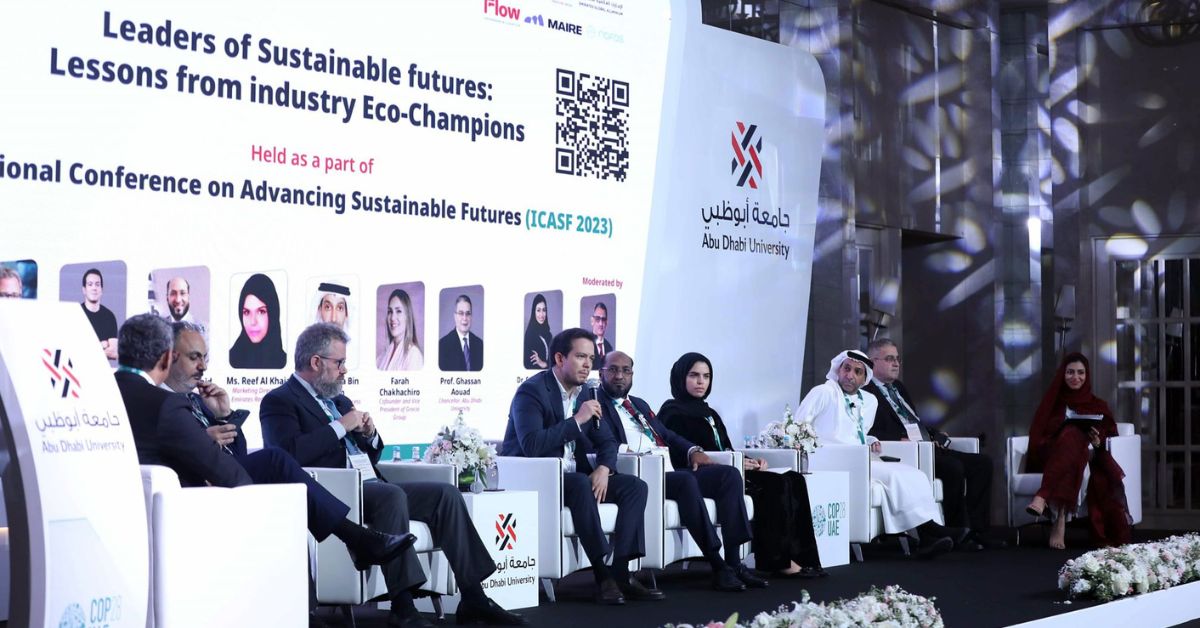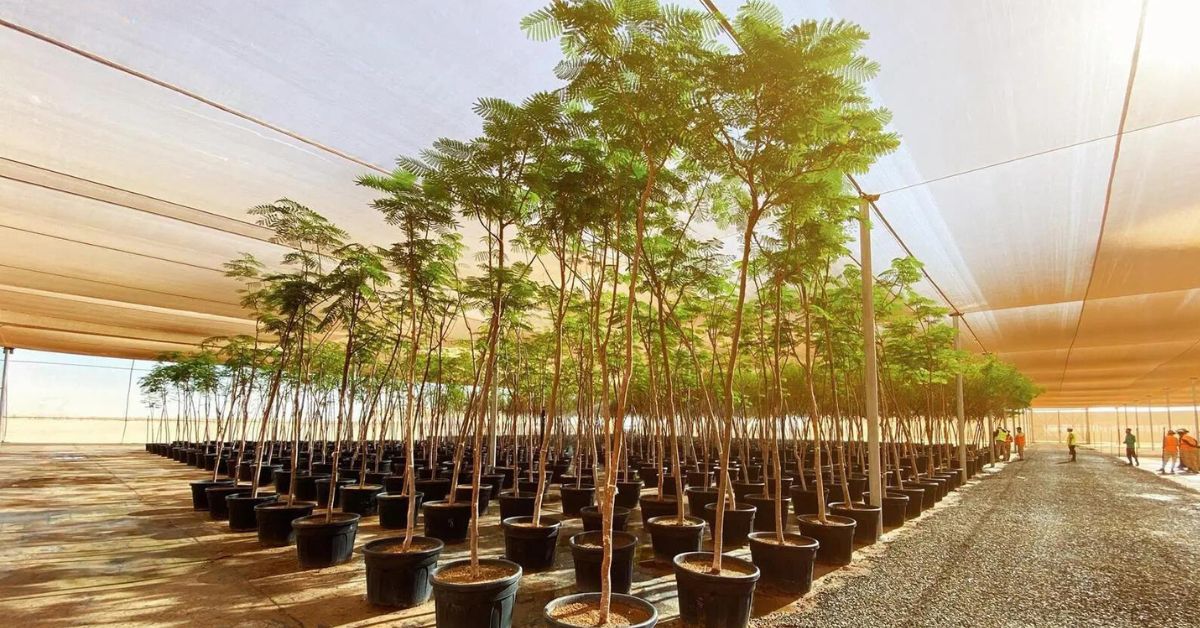DUBAI, UAE — In a pivotal era defined by global efforts to combat climate change, GCC countries are at the forefront of a transformative shift toward sustainability.
Adopting green strategies and sustainability practices is not merely an environmental commitment but a profound economic renaissance.
Maryam Al Mansoori, General Manager at Rebound Ltd., sheds light on the far-reaching impacts of this paradigm shift, outlining the key elements that are shaping the GCC’s journey toward a greener and more sustainable future.
Unlocking economic potential
The vision for a sustainable GCC economy is rooted in environmental stewardship and holds immense economic promise.
At A Glance GCC's Transformative Shift to Sustainability: GCC countries lead a profound shift toward sustainability, crucial in the global fight against climate change. Economic Renaissance through Green Strategies: Adoption of green strategies signifies not just environmental commitment but also a profound economic renaissance. Unlocking Economic Potential: PwC predicts over US$ 2 trillion in economic growth and 1 million jobs by 2030 in GCC through sustainability. Renewable Energy Growth: Significant investments in solar and wind energy, especially by Saudi Arabia and the UAE, mark a clean energy transition. Job Creation in Sustainability Sector: IRENA forecasts over 220,000 new jobs in the GCC's renewable energy sector by 2030. Resource Management for Stability: GCC's focus on sustainable resource management strategies like zero-waste-water desalination and sustainable urban planning. Foreign Investment and Collaboration: The sustainability focus in the GCC is attracting international investments and partnerships in renewable energy and sustainable infrastructure. Government Policies Promoting Green Practices: GCC governments are implementing policies to encourage businesses and industries to adopt sustainable practices. Aligning with Global Climate Efforts: GCC's sustainability commitment aligns with global climate change efforts, enhancing international reputation and economic stability. Monitoring Emerging Trends and Technologies: GCC closely watches trends in renewable energy technologies, water desalination, waste management, and smart city solutions. Saudi Arabia's Green Initiative: Saudi Arabia's commitment to plant 50 billion trees and generate half of its energy from renewables. Challenges in Sustainable Transition: GCC faces challenges like water scarcity and waste management while moving away from fossil fuel reliance. Consumer Behavior Influence: A shift towards sustainability is influencing consumer behavior, with a growing preference for environmentally friendly products. Sustainable Success Stories: Initiatives like Masdar City and waste-to-energy plants showcase the economic and environmental benefits of sustainability in GCC.
PwC’s analysis suggests that the GCC nations can unlock over US$ 2 trillion in economic growth and create more than 1 million jobs by 2030 through sustained commitment to sustainability. This underscores a transformative opportunity for the emergence of new sectors, including renewable energy, green technologies, and sustainable agriculture.
As Al Mansoori emphasizes, the key lies in aligning national policies to promote sustainability, attract investors, drive innovation, and foster long-term economic growth. This strategic approach ensures that sustainability is not an afterthought but an integral consideration in every facet of economic planning and execution.
Industries undergoing transformation
The winds of change are sweeping across various industries within the GCC, with the renewable energy sector poised for substantial growth. Notable investments in solar and wind power projects by countries like Saudi Arabia and the UAE signal a decisive shift toward cleaner energy sources.
According to a report by Knowledge Sourcing Intelligence, the waste management, water conservation, and sustainable construction sectors are also set to expand.
The emphasis on sustainability is not merely a local initiative; it aligns with global trends. As international commitments and initiatives gain traction, GCC countries are strategically positioning themselves to lead in emerging sectors and reduce dependence on traditional industries.
Job creation and skill development
The transition to a sustainable economy goes hand in hand with job creation and skill development. According to the International Renewable Energy Agency (IRENA), the renewable energy sector in the GCC is expected to generate over 220,000 new jobs by 2030. This growth spans various fields, from engineering and project management to maintenance and financial services.
Furthermore, sustainability is reshaping the financial sector, with sustainable investing projected to create new job opportunities. The emphasis on sustainable practices in agriculture and waste management is paving the way for the emergence of new industries, such as organic farming and recycling facilities. The potential for job creation in the recycling and sustainability industry is substantial, offering not only environmental benefits but also economic growth.
Clean energy transition
Energy production and consumption are pivotal components of economic dynamics. GCC countries, particularly the UAE and Saudi Arabia, are making substantial investments in renewable energy projects, focusing on solar and wind power.
Al Mansoori mentioned, “Countries like Saudi Arabia and the UAE have been investing heavily in renewable energy, with Saudi Arabia setting a target to generate 50 percent of its electricity from renewables by 2030, while the UAE aims to generate 50 percent of its electricity from clean sources by 2050.”
Industries related to waste management, water conservation, and sustainable construction are expected to expand. According to a report by Knowledge Sourcing Intelligence, the GCC waste management market is expected to grow at a CAGR of 5.1 percent from 2021 to 2026.
In an interview with TRENDS, she added, “Notable announcements made by MENA countries to advance climate action include Saudi Arabia’s Greenhouse Gas Crediting and Offsetting Mechanism (GCOM), the Roadmap to Reaching the Saudi Green Initiative’s 10 Billion Tree Target, and the Empowering Africa initiative, which builds upon the foundations set by the Clean Fuel Solutions for Cooking program.
The economic benefits of transition
The economic benefits of this transition are multifaceted. It reduces dependence on fossil fuel imports, enhances energy security, and creates a diversified and stable energy mix. The development of renewable energy infrastructure not only stimulates job creation but also positions the GCC countries as leaders in the global clean energy market.

Resource management for long-term stability
With abundant natural resources, GCC countries are integrating sustainability into resource management strategies. Responsible use of resources, zero-waste-water desalination, sustainable transport systems, and urban planning are becoming integral components of the region’s sustainability agenda.
PwC’s observations highlight a growing business case for environmental sustainability, with companies recognizing the importance of integrating sustainability into resource management strategies.
This approach ensures long-term economic stability by mitigating environmental risks and fostering responsible resource usage. GCC nations are leveraging sustainability as a cornerstone for resilient economic development.
Foreign investments and collaborations
The emphasis on sustainability has not gone unnoticed by international investors. The GCC’s focus on sustainable finance and investments has attracted significant interest, with a majority of investors in the Middle East and North Africa (MENA) region expecting to increase investments in renewable energy. Foreign investments in solar projects, sustainable infrastructure, and smart cities underscore the potential for collaboration and knowledge exchange.
International partnerships contribute to shared expertise, technological advancements, and increased economic integration. The GCC region’s commitment to sustainability serves as a magnet for global collaborations that go beyond economic benefits to address shared environmental challenges.
Success stories in sustainability
Several green projects and initiatives in the GCC have demonstrated positive economic returns. Masdar City in Abu Dhabi stands out as a successful sustainable infrastructure development model, attracting investments from global companies.
Waste-to-energy plants, sustainable agriculture initiatives, and interconnection projects like the Gulf Cooperation Council Interconnection Authority (GCCIA) are contributing to local economic growth and environmental preservation.
Saudi Arabia’s green Initiative
Saudi Arabia’s Green Initiative, which targets planting 50 billion trees and generating 50 percent of the country’s energy from renewables, exemplifies a comprehensive approach to sustainability with positive economic and environmental returns.
Overcoming challenges
While pursuing sustainability, GCC countries face challenges such as water scarcity, waste management, and reducing reliance on fossil fuel revenues.
However, proactive investments in sustainable industries, research and development, and policy frameworks are helping overcome these obstacles. The GCC’s commitment to a sustainable future is evident in its multifaceted approach to address challenges and drive innovation.
Influencing consumer behavior
The shift towards sustainability is not confined to the boardrooms; it is permeating consumer behavior. Increased awareness of environmental issues leads consumers to seek environmentally friendly products and services. Studies indicate a growing demand for brands aligned with sustainability principles, and businesses incorporating sustainable practices stand to gain a competitive edge.
Government policies and regulations
GCC governments are actively implementing policies and regulations to incentivize businesses and industries to adopt greener practices. National frameworks like the UAE Green Agenda 2015-2030 and Saudi Arabia’s National Renewable Energy Program (NREP) provide strategic direction. Initiatives such as the Abu Dhabi Sustainable Business Leadership Forum and the Dubai Green Fund showcase the commitment to creating an enabling environment for sustainable practices.
Aligning with global climate efforts
The commitment to sustainability aligns seamlessly with the broader economic goals and visions of the GCC countries. Aligning with global efforts to combat climate change enhances international reputation and contributes to long-term economic growth and stability. The increasing preference for brands aligned with sustainability principles emphasizes the societal shift towards responsible and environmentally conscious practices.
Monitoring emerging trends and technologies
GCC economies are closely monitoring emerging trends and technologies in sustainability. Advancements in renewable energy technologies, energy storage, water desalination, waste management, and smart city solutions are key focus areas.
The integration of electric vehicles into transportation systems and significant investments in solar energy projects reflect the region’s commitment to staying at the forefront of sustainable innovations.
The journey toward sustainability in the GCC is multifaceted, encompassing economic growth, job creation, resource management, and global collaborations. As the region navigates challenges and embraces opportunities, the commitment to a sustainable future emerges as a cornerstone for resilient and prosperous economies.
The GCC’s strategic shift toward sustainability is not just a response to global trends but a proactive and transformative approach to shaping a resilient and green future for future generations.








